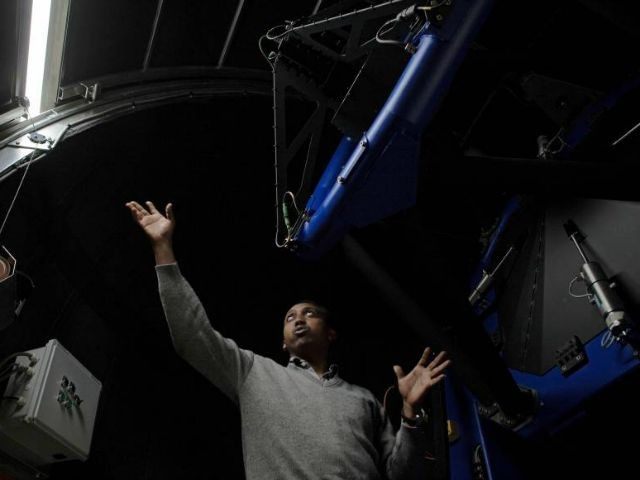Ethiopia established its own space program with two enormous telescopes on top of Mount Entoto, which reaches 10,500 feet high. It is the first such program in East Africa, but Ethiopia is one of the world’s poorest countries.
“Science is part of any development cycle,” declared Abinet Ezra, communications director for the Ethiopian Space Science Society (ESSS). “Without science and technology, nothing can be achieved. Our main priority is to inspire the young generation to be involved in science and technology.”
Mohammed Alamoudi, the country’s richest man, established the ESSS “in 2004 to promote astronomy.” He funded the Entoto Observatory and Research Center to house the massive telescopes. The equipment allows scientists “to measure wavelengths of electromagnetic radiation.” It also means students do not need to travel to study.
“Being poor is not a boundary to start this program,” stated Solomon Belay, the director of the observatory and an astrophysics professor. “Engineering and sciences are important to transform our agriculture into industry.”
Ethiopia hopes to launch “a satellite into orbit within five years to monitor farmland and to improve communications.” But the program received numerous criticisms since starvation and malnourishment is still a major problem in the country. It is believed 29% of the citizens “live on less than $2 a day.” This means Ethiopia receives aid, including from the Department for International Development (DfID). The institute claims none of its money funds the space program.
“Not a penny of British aid goes to Ethiopia’s space programme,” explained a spokesman. “The aid we do give is saving lives and addressing the root causes of poverty, migration and extremism, which directly benefits Britain.”
The observatory is often covered in clouds during rainy season and obstructed by lights from Addis Ababa. The ESSS wants to build another observatory in Lalibela, which is far enough away from the lights.
“We are using space applications in everyday activities, for mobile phones, weather — space applications are fundamental,” clarified Kelali Adhana, the International Astronomical Union chief for East Africa. “We cannot postpone it, otherwise we allow ourselves to live in poverty.”

COMMENTS
Please let us know if you're having issues with commenting.